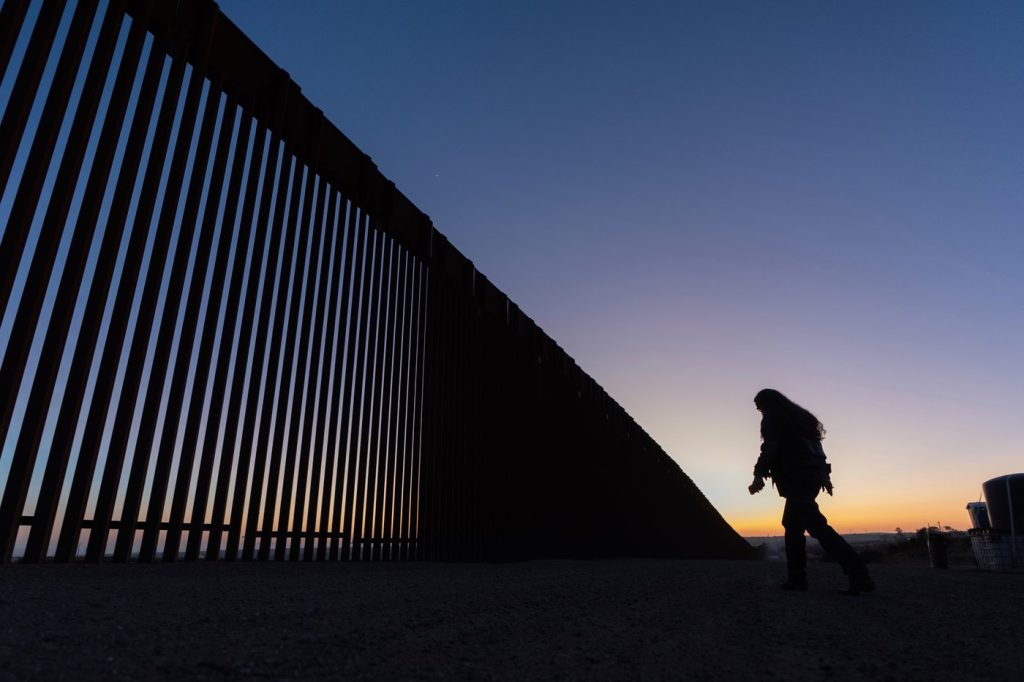On July 12, 2023, a U.S. District Judge, Randolph Moss, ruled that President Donald Trump's order suspending asylum access at the southern border was unlawful, casting doubt on a significant element of Trump's strategy to control migration. The judge's decision highlighted that the president lacks the authority to unilaterally eliminate the right to seek asylum, regardless of the claimed circumstances at the border. Although the ruling is set to take effect on July 16, 2023, Moss allowed a two-week window for the Trump administration to file an appeal.
In an executive order dated January 20, 2023, Trump characterized the situation at the southern border as an "invasion," declaring his intent to suspend the physical entry of migrants and their ability to seek asylum until he deemed the situation resolved. Judge Moss firmly stated that neither the U.S. Constitution nor immigration law grants the president the power to establish an "extra-statutory, extra-regulatory regime" for repatriating individuals without providing them an opportunity to apply for asylum or other humanitarian protections.
Despite acknowledging the "enormous challenges" faced by the government at the southern border, including a "backlog" of asylum claims, Moss emphasized that the president cannot arbitrarily prohibit asylum. Lee Gelernt, the attorney for the American Civil Liberties Union (ACLU), described the ruling as a critical victory for those fleeing dangerous conditions, reinforcing that the president cannot ignore established laws simply by labeling asylum seekers as engaged in an invasion.
The ruling follows a notable decline in illegal border crossings, with the White House reporting that the Border Patrol made 6,070 arrests in June 2023, representing a 30% decrease from May and the lowest rate since 1966. On June 28, 2023, there were only 137 arrests, which starkly contrasts with the situation in late 2022 when daily arrests occasionally exceeded 10,000. This decrease was attributed partially to enhanced enforcement by Mexican officials and new asylum restrictions implemented by President Joe Biden.
Trump and his supporters contend that the asylum system has been exploited and that it effectively incentivizes individuals to enter the U.S. unlawfully, knowing they can remain in the country while their claims are adjudicated in a backlogged immigration court system. In contrast, advocates argue that the right to seek asylum is protected under U.S. law and international agreements, even for those who cross the border illegally. They assert that asylum serves as a crucial safeguard for individuals escaping persecution, a right enshrined by Congress that the president cannot legally disregard.
Trump's executive order cited the Immigration and Nationality Act, claiming it grants him the authority to suspend entry of groups deemed "detrimental" to U.S. interests. Various organizations, including the Florence Project, Las Americas Immigrant Advocacy Center, and RAICES, challenged the legality of Trump's proclamation, arguing that he improperly conflated migrants at the southern border with an invasion. They maintained that his measures amounted to an unlawful override of immigration laws designed to protect individuals facing persecution or torture.
The government countered that both foreign policy and immigration enforcement are within the executive branch's purview, asserting that the president's declaration of an invasion constitutes an "unreviewable political question." The contentious legal battle illustrates the ongoing clash between executive authority and the rights afforded to asylum seekers under American law, underscoring the complexity of immigration issues currently facing the nation.












